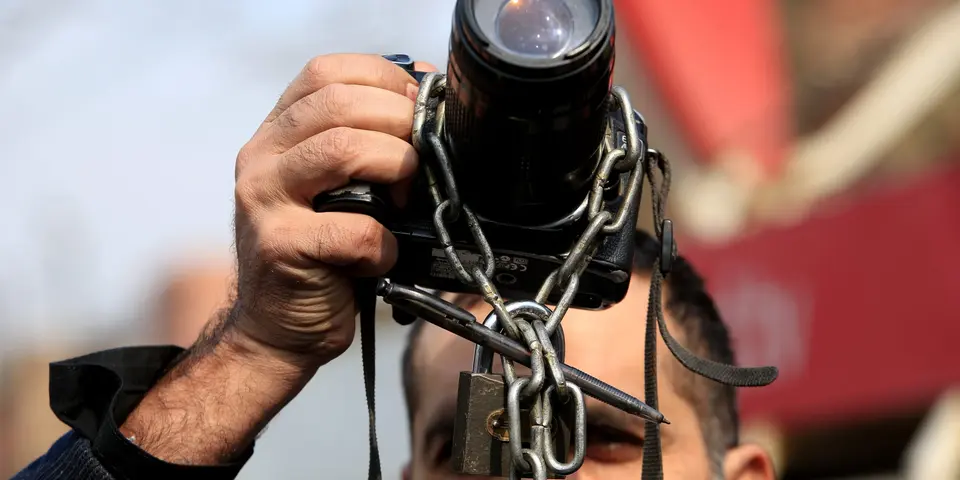
World Press Freedom Day 2025: Defending the Frontlines of Truth in Southeast Asia
May 03, 2025

JAKARTA/NEW YORK, 3 May 2025 — On World Press Freedom Day, the ASEAN Parliamentarians for Human Rights (APHR) and the Committee to Protect Journalists (CPJ) call for urgent action to safeguard press freedom and protect journalists across Southeast Asia.
As governments escalate efforts to control narratives, intimidate reporters, and manipulate technologies, journalism—and democracy itself—is under threat. Globally, near record-high numbers of journalists are in jail, including many in Southeast Asia, with the media facing an unprecedented level of danger to do their jobs in keeping citizens informed.
“The freedom of the press is not merely a symbol of democracy—it is its very substance,” said Mercy Chriesty Barends, Chairperson of APHR and member of the House of Representatives of Indonesia. “When journalists are silenced, citizens are kept in the dark. This World Press Freedom Day is a call to parliamentarians across the region to stand up, speak out, and defend the right to know.”
“Journalists in Southeast Asia are on the frontline of resistance against authoritarianism,” said Jodie Ginsberg, Chief Executive Officer of CPJ. “ASEAN governments must stop treating the press as a threat and start recognizing it as a pillar of democratic life.
Journalists bring us news that is essential for our safety and stability, yet their ability to do
so is facing an unprecedented level of attack.”
Across Southeast Asia, journalists are under siege. The region remained one of the worst places for journalists, with at least 52 journalists behind bars on December 1, 2024, CPJ’s latest annual global prison census shows. Meanwhile the Philippines and Myanmar have consistently ranked as among the top offenders where murderers of journalists go free.
In Indonesia and Malaysia, leading independent news outlets such as Tempo and Malaysiakini face pressure for their groundbreaking work in exposing corruption and abuses. In the Philippines, reporters face judicial harassment, digital attacks, and threats of imprisonment under cyber-libel laws.
In Myanmar, the press has been crushed by the military regime, with journalists jailed, tortured, or killed. Similar crackdowns on media independence are unfolding in Cambodia, Vietnam, and Thailand—through laws that criminalize “fake news,” “defamation,” or vaguely defined threats to “national security.”
“Repressive laws are being used to disguise authoritarianism as legality,” said Wong Chen, APHR Board and Member of Parliament of Malaysia. “What we are witnessing is a legal war on truth. Journalists who challenge power are being treated as enemies of the state, when in fact, they are defenders of public interest.”
The threats are also digital. Artificial intelligence is now misused as a tool of oppression, used to automate surveillance, generate deep fakes, and flood the public sphere with state-sponsored disinformation. Social media algorithms amplify propaganda while muting independent voices.
“AI should serve the truth, not sabotage it,” said Rangsiman Rome, APHR Board Member and Member of the House of Representatives of Thailand. “Authoritarian regimes are using digital technologies to silence dissent in real-time. We urgently need ethical AI governance that protects freedom of expression—not undermines it.”
Media independence is further eroded by the growing concentration of ownership in politically connected hands. Editorial policies are increasingly dictated by state-linked advertisers and elite interests, turning newsrooms into echo chambers of power.
“Journalism is not a crime. It is a civic duty. A silenced press does not ensure stability—it ensures impunity. When journalism dies, democracy follows. We must not allow that silence to define Southeast Asia’s future”, said Arlene Brosas, APHR Board Member and Member of the House of Representatives of the Philippines.
APHR and CPJ call for:
- The formation of an inter-parliamentary alliance to uphold press freedom and resist the weaponization of law and technology against journalists;
- Stronger protection mechanisms for reporters, media workers, and whistleblowers facing threats;
- Reform of repressive legislation that criminalizes legitimate journalism under vague or sweeping charges;
- ASEAN’s active engagement in protecting press freedom and democratic space in the region.
“Without press freedom, there can be no real accountability, no meaningful transparency, and no functioning democracy,” said Angelina Sarmento, APHR Board Member and Member of Parliament of Timor-Leste. “We must reverse this dangerous tide through collective regional action—from parliaments to civil society and beyond.” #
ASEAN Parliamentarians for Human Rights (APHR) was founded in June 2013 with the objective of promoting democracy and human rights across Southeast Asia. Our founding members include many of the region's most progressive Members of Parliament (MPs), with a proven track record of human rights advocacy work.